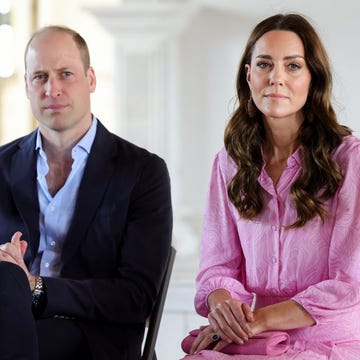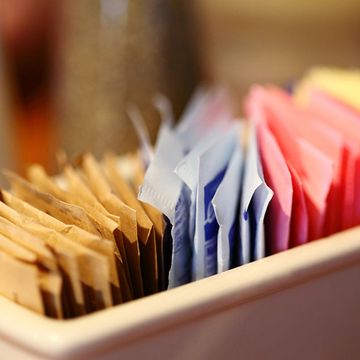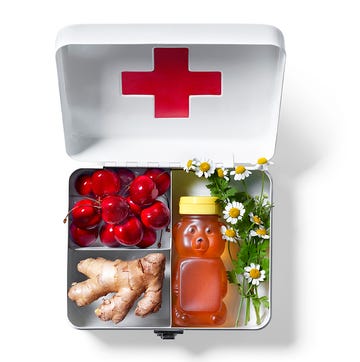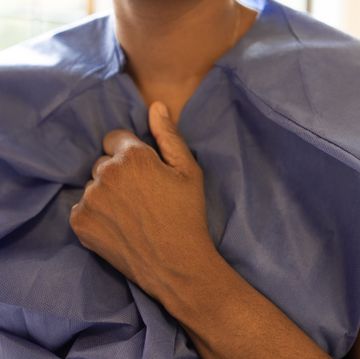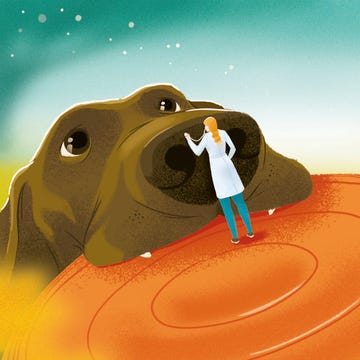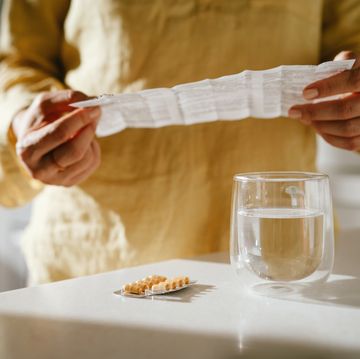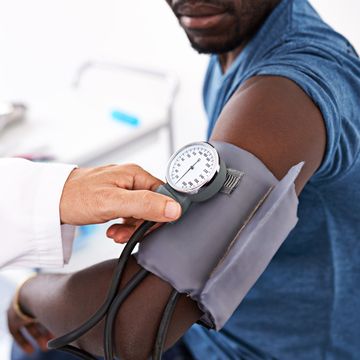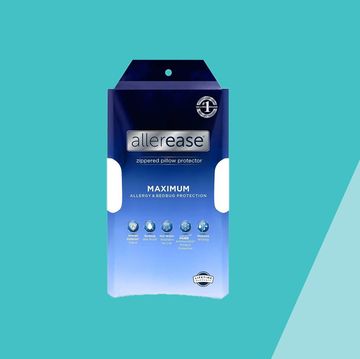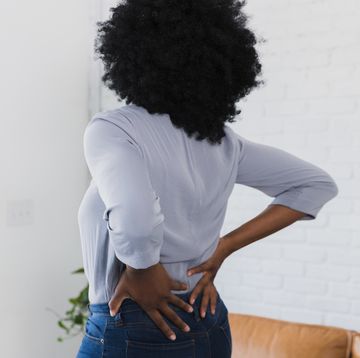With 49 singles victories and seven Grand Slam titles as recently as 2017, Venus Williams has dominated the sport of tennis. To this day, she remains the most decorated female tennis player to compete at the Olympic Games. What people don’t know, however, is that for the past decade, Williams has been in a battle with her own body. She recently opened up to Prevention.com about her struggle with Sjogren’s syndrome, an autoimmune disease that affects about 4 million people in the U.S.
It started in 2004, when Williams experienced symptoms like fatigue and shortness of breath. “No matter how hard I worked, I was exhausted, short of breath, and never felt in shape. It was really frustrating,” Williams tells Prevention.com. "My symptoms got progressively worse, to the point where I couldn’t play professional tennis anymore."
Seven years went by before Williams received a diagnosis of Sjogren’s syndrome—an autoimmune disease that's identified by two of its most common symptoms: dry eye and dry mouth. “Unfortunately, that’s typical of people with autoimmune disease,” she says. “They're misdiagnosed or too sick to function. I literally had professional tennis taken away from me before I got the right diagnosis."
"So you can imagine, it has definitely affected my game," she says. Williams would go to her doctor presenting symptoms, only for her doctors to find nothing medically wrong with her. "I felt out of control," she says.
Understanding Sjogren's syndrome
Just like other rheumatic diseases, Sjogren's syndrome can take several years to diagnose, because dryness and other symptoms are common and can present subtly. "Typical symptoms are fatigue and dry mouth or eyes, although those with Sjogren's may experience muscle aches, joint pain, and inflammation of major organs," says Paula Marchetta, MD, president of the American College of Rheumatology. “Often symptoms such as fatigue or muscle aches start to affect daily life, and that’s when a patient seeks help.”
Once diagnosed with Sjögren’s, you'll have it for life, but depending on the course of the disease, Dr. Marchetta says that most patients with Sjögren’s live normal lives. "They mainly just have to deal with uncomfortable symptoms like dryness of eyes and mouth as well as achiness and fatigue."
Prioritizing the road to recovery
The tennis champ was relieved to finally know what was happening with her body, but she was disheartened to learn that treating the disease wouldn’t be a quick fix. Williams pulled out of the 2011 U.S. Open when disease-related fatigue became too much to bear, and she was booted out of the top 100 tennis players for the first time since 1996. Instead, she took time to focus on her health.
"In the beginning, I just had to wait to get better," Williams says. "One of the medications I had took six months to set in. There was another that took one to three months. It was kind of a waiting game until you can go back to what you had been doing."
Though chronic illness like Sjögren’s cannot be cured, it can be treated with medication. Dr. Marchetta says that Sjogren's syndrome treatment is directed at the patient's specific set of symptoms. "You can control eye dryness with drops, ointment, or an anti-inflammatory drug prescribed by an ophthalmologist. There's also medication to stimulate saliva."
"Before I was on medication, the quality of my life wasn’t as good because I was extremely uncomfortable," Williams says, reflecting on those years before her diagnosis. "Just being alive was very uncomfortable. I was exhausted to the point that I was just always uncomfortable or in pain."
Along with treatment, Williams sought to improve her recovery by adopting a vegan diet, which she still follows today. “Lifestyle changes like exercise, a healthy diet, and good sleeping habits can help someone with autoimmune disease feel better,” Dr. Marchetta says.
Williams’s breakfasts usually include smoothies and fruit, as she's "not a huge eater in the mornings," but it gets her through practice until she has a lunch and dinner filled with protein, carbs, and veggies. "If it’s leading up to a big match or it’s dinner I’ll eat a little heavier, and occasionally I have some fun with sweets, too. I'm only human!"
Paying attention to your body
After some time off in 2011, Williams entered into the 2012 season ranked at No. 134, but ended the season at No. 24, a strong comeback for the tennis pro! She finished top 50 in 2013 and 2014, and earned a place back in the top 20 in 2015. Two years later at 37—an age when most players hang their rackets—Williams reached two Grand Slam finals and became No. 5 in the world.
"You grow with the wins and the losses. You get wiser and stronger. It’s exciting to be able to play as long as you can and because you’re able to build this wealth of knowledge that you can use," Williams says of her tennis career. "I love every single moment of the learning. Some of those moments are painful, but you still learn."
Today, Williams continues to play the sport she loves as she manages Sjögren’s syndrome. "There are times when things are better and times when they’re not as good, that’s when you have to listen to your body and understand that," she says. "Life has changed a little bit, but it doesn’t mean that you can’t achieve the same things. You just have to be smarter."
She wants people with autoimmune disease to know they aren't alone. "Don’t be discouraged, because what [you're] going through is similar to other people," she says. "Talk to those people who understand you or have a similar condition, reach out, and build a [support] team. Don’t isolate yourself. Don’t give up."
There a ton of resources for those with Sjögren’s syndrome and other rheumatic disease, like simpletasks.org sponsored by the American College of Rheumatology. "It has a lot of info about rheumatic diseases like Sjögren’s, as well as ways for patients with these illnesses to get involved with advocacy around disease," Dr. Marchetta says. "You can also find support groups."
As Williams gears up for her next Grand Slam tournament, the U.S. Open, she's looking ahead to even more success. "The past is the past and what I’m working towards is the most important to me. For me, the most excellent victory is still ahead of me."
Stay updated on the latest science-backed health, fitness, and nutrition news by signing up for the Prevention.com newsletter here. For added fun, follow us on Instagram.

Currently an assistant editor at Prevention.com, Nicol is a Manhattan-based journalist who specializes in health, wellness, beauty, fashion, business, and lifestyle. Her work has appeared in Women’s Health, Good Housekeeping, Woman’s Day, Houston Chronicle, Business Insider, INSIDER, Everyday Health, and more. When Nicol isn't writing, she loves trying new workout classes, testing out the latest face mask, and traveling. Follow her on Instagram for the latest on health, wellness, and lifestyle.






